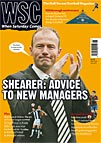 Ivory Coast’s match with Malawi ended in horrific circumstances as 19 fans lost their lives. James Copnall investigates where things went wrong
Ivory Coast’s match with Malawi ended in horrific circumstances as 19 fans lost their lives. James Copnall investigates where things went wrong
The 19 dead and 132 injured in Africa’s latest stadium disaster, in Abidjan in Ivory Coast, suggest lessons haven’t been learned from past tragedies. On Sunday the problems started outside the stadium. Thousands of supporters, many without tickets, milled round the freshly painted bright orange walls of the Félix Houphouët-Boigny stadium. Music was blasting from inside the stadium, and queues outside stretched hundreds of metres even four hours before the 5pm kick-off. The World Cup qualifier, against a limited Malawi side, was expected to be an easy and morale-boosting victory. Local football fans needed a lift after the fiasco of the inaugural international tournament for African-based players in February, which Ivory Coast hosted and flopped at; the national side had also performed badly at an African junior competition in Rwanda. Perhaps more importantly, in a country where he has reached a staggering level of stardom, Didier Drogba was playing on home soil, for the first time in over a year. What happened next will be a topic of debate for a long time.
Read more…
 In 1989 football’s future was uncertain. Roger Titford looks at how Hillsbrough began a process which created a safer but less visceral experience for fans
In 1989 football’s future was uncertain. Roger Titford looks at how Hillsbrough began a process which created a safer but less visceral experience for fans